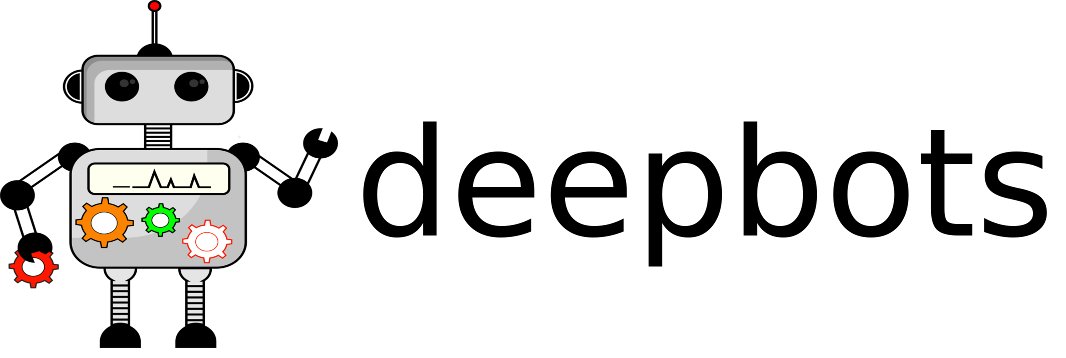Deepbots is a simple framework which is used as "middleware" between the free and open-source Cyberbotics' Webots robot simulator and Reinforcement Learning (RL) algorithms. When it comes to RL, gym environments have been established as the most used interface between the actual application and the RL algorithm.
Deepbots is a framework which follows the gym interface logic and bridges the gap between the gym environment and the simulator to enable you to easily create custom RL environments in Webots.
- Install Webots
- Install Python version 3.X (please refer to Using Python to select the proper Python version for your system)
- Refer to the Using Python guide provided by Webots
- Webots provides a basic code editor, but if you want to use PyCharm as your IDE refer to using PyCharm IDE provided by Webots
You will probably also need a backend library to implement the neural networks, such as PyTorch or TensorFlow. Deepbots interfaces with RL agents using the gym logic, so it can work with any backend library you choose to implement the agent with and any agent that already works with gym, such as stable-baselines3 implementations.
Deepbots can be installed through the package installer pip running the following command:
pip install deepbots
If you encounter this
issue please use pip install setuptools==65.5.0 before installing deepbots.
- On the deepbots-tutorials repository you can find the official tutorials for deepbots
- On the deepworlds repository you
can find examples of deepbots being used.
Feel free to contribute your own! - On the deepbots documentation site you can find the framework's documentation
Conference paper (AIAI2020): https://link.springer.com/chapter/10.1007/978-3-030-49186-4_6
@InProceedings{10.1007/978-3-030-49186-4_6,
author="Kirtas, M.
and Tsampazis, K.
and Passalis, N.
and Tefas, A.",
title="Deepbots: A Webots-Based Deep Reinforcement Learning Framework for Robotics",
booktitle="Artificial Intelligence Applications and Innovations",
year="2020",
publisher="Springer International Publishing",
address="Cham",
pages="64--75",
isbn="978-3-030-49186-4"
}
This project has received funding from the European Union's Horizon 2020 research and innovation programme under grant agreement No 871449 (OpenDR). This publication reflects the authors’ views only. The European Commission is not responsible for any use that may be made of the information it contains.
Thanks goes to these wonderful people (emoji key):
Manos Kirtas 💻 |
Kostas Tsampazis 💻 |
Jiun Kai Yang 💻 |
MentalGear 🤔 |
Dreamtale 🐛 |
Nikolaos Kokkinis-Ntrenis 💻 📖 🤔 |
This project follows the all-contributors specification. Contributions of any kind welcome!
Special thanks to Papanikolaou Evangelia for designing project's logo!





